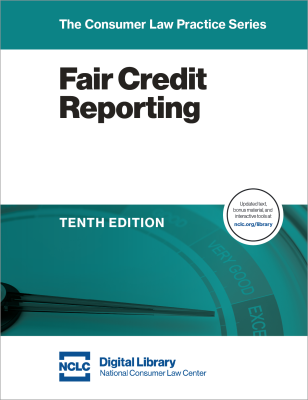Description of Employee and Tenant Background Checks
About 94% of employers and 90% of landlords contract with third-party background screening companies to perform criminal background checks to evaluate prospective employees and tenants. However, those checks are often riddled with errors, even including erroneous reports of criminal convictions. Such errors have unusually significant importance. An erroneous report of a criminal conviction on a background check can deprive an individual of employment or housing.
Far from being carefully researched, reports are often generated by running automated searches through giant databases of aggregated criminal record data. These searches try to match an individual’s information (such as name and date of birth) with the records in the databases.
Three of the largest background screening companies—First Advantage, Sterling, and Hire Right—produce over 50 million checks a year, and Checkr produces another 12 million reports a year for prospective hires in the gig economy. More background checks are done by around 2000 other background screening companies.
At this volume, it is clear that criminal background check reports for employers and landlords often undergo very little, if any, human review, and are just automated compilations of various data sets. The lack of review is particularly problematic because the data is often purchased in bulk through intermediaries or using web scraping technology. The data often lacks key personal identifiers, information about how a case was resolved, and may not be updated frequently. As a result of practices like these, along with the use of loose matching criteria, it is hardly a surprise that these background check reports are riddled with errors. Indeed, such reports may potentially contain more errors than even the credit reports produced by Equifax, Trans Union, and Experian.
The typical criminal background check report may include a name, state, date, and official number related to an incident, perhaps with some additional partial identifying information about an individual, and possibly a short-hand descriptor of the incident. Although the report likely will contain some description of the offense, it may not include whether charges were dropped, the case resolved with a different violation, or the there was an acquittal.
Somewhere between 70 and 100 million Americans have some sort of criminal record, meaning that an accurate description of that record or whether it in fact actually belongs to the individual is essential for many Americans to get a fair shake at employment or housing. But some background screening companies choose not to verify the damaging information that they send to employers and landlords.
What’s more, many screening products are now designed to automate and outsource decision making to the background screening company. In this situation, landlords and employers often do not see the underlying minimal background check report. Instead, the background screening company may simply inform the employer or landlord whether or not to accept the individual, or they may provide some other code distilling the background check into a simple warning whether to accept the individual’s employment or housing application. This recommendation is not based on a skilled individual’s judgment after reviewing the original records, but rather is generated via an automated process that compares retrieved records (often containing incomplete information) with eligibility criteria provided by the employer or landlord.
For more detail on background check companies and how they operate, see NCLC’s Broken Records Redux: How Errors by Criminal Background Check Companies Continue to Harm Consumers Seeking Jobs and Housing (Dec. 2019).
Types of Errors Found in Criminal Background Check Reports
Criminal background check reports are often inaccurate or incomplete. The criminal record might belong to a different person because background check companies limit the identifying data used to match an individual to a record, and the criminal record itself may have inadequate identifying data. The major credit bureaus have stopped using public records like these in large part because of the difficulty in matching information in the records with specific individuals. Many background check companies have no such qualms. Many companies even rely on just name and date of birth, even when a name is a common one, and even when it is possible to use additional identifiers.
Background check companies may also rely on old versions of data sets that have since been updated, for example, to include the fact that a criminal record has been sealed, expunged, or contains obsolete and thus unreportable information. The data set version also may not include the case’s final disposition, such as that it was dismissed or resulted in a conviction for a lesser offense. The background check company’s failure to use the latest version of a data set may thus produce serious errors, such as reporting crimes that have been expunged from the public record or arrests that never led to a conviction and that are over seven years old and by law should not be reported.
The same arrest might also be included multiple times in a background check report, leading the company’s algorithm to report that the individual should be denied employment or housing based on that error. Or, a traffic fine may be coded as a serious criminal conviction.
Even when state agencies may set out requirements governing the use of their criminal record data, background check companies sometimes fail to comply with them. For example to prevent the reporting of sealed or expunged records, a state may require that a user periodically update data based on recent changes in the state’s database. Some background check companies have ignored these directives and have reported expunged records.
Background Check Errors Lead to Significant FCRA Claims
Background check companies are consumer reporting agencies covered by the Fair Credit Reporting Act. See NCLC’s Fair Credit Reporting §§ 2.3.6.4, 7.2.4. This is the case even if the company does not retain its own data files, but instead compiles data from other consumer reporting agencies. See 15 U.S.C. § 1681a(u). See also NCLC’s Broken Records Redux: How Errors by Criminal Background Check Companies Continue to Harm Consumers Seeking Jobs and Housing 25 (Dec. 2019).
As such, background check companies, along with users of background check reports, including employers and landlords, can be liable to the extent that they engage in actionable FCRA violations. These remedies include actual damages for pecuniary and intangible injuries, statutory damages, punitive damages for willful violations, and attorney fees. See NCLC’s Fair Credit Reporting §§ 12.5, 12.7.
Here are some of the FCRA violations that can result from inaccurate, incomplete, or outdated background check reports:
- Reporting criminal history information other than convictions (such as arrests or charges) beyond the longer of seven years or the duration of the statute of limitations. See NCLC’s Fair Credit Reporting § 5.2.3.7.2.
- Background check companies must follow “reasonable procedures to assure maximum possible accuracy.” See NCLC’s Fair Credit Reporting §§ 4.2.1, 4.4.1. Although the company may be able to assume that court records are correct, this does not necessarily absolve the company of matching a court record with the wrong individual. Moreover, companies typically do not rely on court records, but instead on information they receive from other private companies. See generally NCLC’s Broken Records Redux: How Errors by Criminal Background Check Companies Continue to Harm Consumers Seeking Jobs and Housing 26 (Dec. 2019).
- Another situation where a company can be liable for failing to follow reasonable procedures to ensure lack of maximum possible accuracy, is if the company does not update its files to see if records have been expunged, sealed, or otherwise altered in the interim, particularly if the government agency supplying the data requires such updates. The same is the case if a report includes the same offense information multiple times.
- When adverse public record information is reported for employment purposes, the background check company must either notify the consumer that it is engaged in that reporting or maintain strict procedures that the information is complete and up to date. See NCLC’s Fair Credit Reporting § 10.2.3.5. The notice must be sent at the time that the background check company provides the information to its employer customer and the notice must indicate that it is reporting criminal record information and the name and address of the employer to whom the report is being sent.
- When a background check report is used for employment purposes, the employer must make three different disclosures. First it must disclose to the individual that it is seeking a background check on the applicant or employee, and must obtain the individual’s written consent to access the report. Second, the employer must give a pre-adverse action notice that includes a copy of the actual report and a summary of the individual’s rights. A third notice is sent if the report is one of the grounds (not necessarily the major ground) for an adverse employment action. This adverse action notice must include the contact information for the background check company, information about the role of the background check company, the individual’s right to dispute the information and to obtain for free another report from the background check company. Importantly, there is a private cause of action for failure to make the first two notices, but not the third notice. See NCLC’s Fair Credit Reporting §§ 7.2.4, 8.11. See also NCLC’s Broken Records Redux: How Errors by Criminal Background Check Companies Continue to Harm Consumers Seeking Jobs and Housing 26, 27 (Dec. 2019).
- Consumers have the right to dispute inaccurate or incomplete information in the report, and then the background check company must conduct a reasonable reinvestigation of the information within thirty days, including forwarding the dispute to the entity reporting the information. The background check company must delete or correct the information if it cannot verify its accuracy. See NCLC’s Fair Credit Reporting § 4.5.


